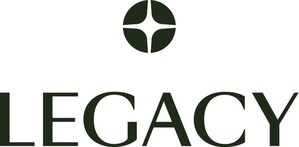New Survey Addresses Public Opinion on Potential Ban on Menthol Cigarettes
WASHINGTON, Sept. 20, 2012 /PRNewswire-USNewswire/ -- A new study released today in the American Journal of Public Health (AJPH) presents the first peer-reviewed data on menthol smokers' behavioral intention if menthol cigarettes were taken off the market, a decision pending with the U.S. Food and Drug Administration (FDA). The results of the national survey show that nearly 40 percent of menthol smokers say they would quit if menthol cigarettes were no longer available.
(Logo: http://photos.prnewswire.com/prnh/20101101/DC86294LOGO )
"Many menthol smokers are motivated to quit, but may have a more difficult time doing so than regular cigarette smokers," said Jennifer Pearson, PhD, MPH, Research Investigator for the Schroeder Institute for Tobacco Research and Policy Studies (SI) at Legacy and lead author of the study. "If the FDA were to ban menthols, hundreds of thousands of smokers might get that extra push they need to make the life-saving decision to quit smoking rather than switching to a non-menthol brand," said Pearson. Previous research from the SI published in AJPH suggested that a menthol ban might prevent up to 600,000 smoking-related premature deaths by 2050, a third of those among African Americans.
Menthol is the only flavor in cigarettes that has not been banned since the FDA acquired regulatory authority over tobacco products as a result of the 2009 Family Smoking Prevention and Tobacco Control Act (FSPTCA). All flavorings other than menthol, including chocolate, strawberry, pineapple, and grape, were removed from cigarettes in September 2009 as part of the FSPTCA, although these flavors can still be used in other tobacco products such as cigars and chewing tobacco. Menthol, the most widely used flavor in tobacco, was not included in this ban despite evidence suggesting targeted marketing of African Americans and a concentration of menthol cigarette smoking among kids, young adults, and African Americans of all ages.
Researchers from the Schroeder Institute for Tobacco Policy and Research Studies at Legacy say that data from today's study could inform the FDA in its long-awaited decision on whether or not to ban menthol cigarettes in the interest of protecting public health.
Results from the survey show that the majority (51.9 percent) of Americans lack a strong opinion for or against a menthol ban. Nearly 30 percent (28.8) oppose and 20.0 percent support a menthol ban.
In addition, support for a menthol ban was highest among racial/ethnic minorities, and those with less than a high school diploma – two groups that are disproportionately affected by tobacco use and particularly menthol cigarette smoking.
"While the FDA deliberates on this issue, tobacco companies have argued that a ban on menthol infringes on freedom of choice, patronizes adults and will lead to a large black market," said David Abrams, PhD, Director of the SI and a co-author. "Today's study provides a strong counter-argument to this perspective, leading the way for the FDA to make a better informed decision about these deadly products," said Abrams.
Background:
Public health groups like Legacy and the SI have urged the FDA to consider the growing evidence against menthol cigarettes and take these products off the market in the interest of public health.
In 2011, the FDA's Tobacco Products Scientific Advisory Committee (TPSAC) determined that the weight of the scientific evidence establishes that removal of menthol cigarettes from the market would benefit public health in the United States – a conclusion applauded by public health and African American advocacy groups. Despite the key TPSAC report conclusion that menthol is more likely than not to promote experimentation with smoking and smoking uptake, the FDA Center for Tobacco Products has yet to act.
Read more about menthol here:
http://www.legacyforhealth.org/PDF/MENTHOL_0210.pdf
http://www.legacyforhealth.org/PDFPublications/Menthol_Fact_Sheet.pdf
Legacy helps people live longer, healthier lives by building a world where young people reject tobacco and anyone can quit. Legacy's proven-effective and nationally recognized public education programs include truth®, the national youth smoking prevention campaign that has been cited as contributing to significant declines in youth smoking; EX®, an innovative public health program designed to speak to smokers in their own language and change the way they approach quitting; and research initiatives exploring the causes, consequences and approaches to reducing tobacco use. Located in Washington, D.C., the foundation was created as a result of the November 1998 Master Settlement Agreement (MSA) reached between attorneys general from 46 states, five U.S. territories and the tobacco industry. To learn more about Legacy's life-saving programs, visit www.LegacyForHealth.org.
Follow us on Twitter @legacyforhealth and Facebook www.Facebook.com/Legacy.
SOURCE Legacy
WANT YOUR COMPANY'S NEWS FEATURED ON PRNEWSWIRE.COM?
Newsrooms &
Influencers
Digital Media
Outlets
Journalists
Opted In





Share this article